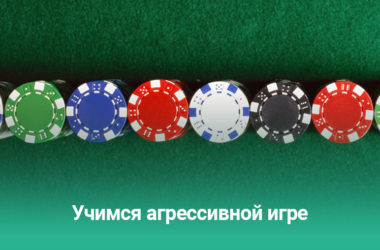It can be hard to know where to start when it comes to workouts at the table... But don't worry, this article details the best practices for learning poker in 2017.
DOWNLOAD The Complete Poker Course
Simply put, the best way to improve your ability as a poker player is to study. In playing with small advantages, it is very important to carefully consider the many complex decisions you face and learn how to evaluate them effectively.
Don't get me wrong, experience is also very important. But it is impossible to take into account all the nuances and subtleties of poker during the game - when you have to act under the pressure of a bank of time or under the threat of a watch coming to you.
The most compelling aspect of learning is the miracles it will do for your win rate. It's helpful to get in the habit of thinking about this bigger picture to motivate yourself to learn.
In some cases, all that is needed is just a few minor strategic adjustments to turn a slightly underdog player into a slightly winning player. Playing may seem a lot more productive than studying at the moment, but this is not always the case.
Too often, players will use the same strategy at the tables for months on end and expect their results to improve. Take the time to evaluate your game, make adjustments as needed, and your winnings will take care of themselves.
Usually players feel that they “don't need to learn” because they have “everything is clear” about poker. Such complacency is never justified and will not allow you to grow as a player.
Even the best players in the world don't play perfect - which means there is always room for improvement in your strategy.
Given the amount of resources now available on the Internet, it has never been easier for beginners to learn how to play poker or for more experienced players to develop their skills. Below is a list of different ways to learn, each with its own merits, so choosing which works best for you is a great way to get started.

Poker video tutorials
One of the most popular ways to learn is by watching poker training videos. For those of you struggling to stay focused for long periods of time, this can be a good thing, as they are often short in length and draw attention to themselves.
Try to stick to poker training videos that have been recorded by experienced and established players so you can be sure that the material is correct and of high quality.
Live video is perhaps the most common type of instructional video, despite being one of the least effective. (It's hard to absorb information when your hands keep coming.)
The instructor will conduct a detailed review of one or more hands, usually in hand play mode (eg WCOOP Play & Explain with Doug Polk & Pratyush Buddiga).
Another of the most popular ways to improve your poker game is to read related articles. Resources like this serve as a great reference guide and give you ready-made notes that you can revisit later.
For books, pay attention to the release date and be wary of any material that is particularly old. The poker strategy is evolving rapidly and you want to be on top of everything. Given the length of time it takes to write and publish a book, the strategies advocated in them can quickly become outdated.
This does not mean that there are no good poker books. For example, Matt Janda's No Limit Hold'em is a masterpiece. We have a whole article on how cool it is.
To get the most out of this practice, it is important that you be honest with yourself. By carefully and critically assessing your hands, you can make strategic adjustments and learn from your past mistakes.
A good way to make these hand history review sessions more effective is to tag interesting hands as and when they happen (either through your HUD or just taking note of the details). Get in the habit of reevaluating visible hands after every session you play so you can be sure you have at least some balance between playing poker and learning it.
If you play poker online and use tracking software (PokerTracker / Hold'em Manager 2 / DriveHUD), such programs are powerful tools for deconstructing and analyzing your own game.
Due to the large database of hands that you can accumulate and save over a long period of time, you can view statistics that reflect your play. By comparing your own stats to the strongest players in your field of players, you can better understand what adjustments need to be made.
You can also use a wide variety of filters to more accurately determine where your leaks are. Using your database as a learning resource in this way is very important for anyone serious about learning online poker in 2017.
In addition to tracking software, there are many useful poker learning software available in the market that can help you learn.
(Solvers are definitely not recommended for beginners and even some intermediate players, so don't worry about your ability to learn just because you don't have the latest solver software.)
If you have a strategy-related question or want a second opinion, posting on the forum is a good way to get an answer. Also, getting back to the community by answering others' questions is a good way to test and prove your knowledge.
If you prefer discussions with small groups of players, creating a study group can be extremely beneficial for everyone involved.
Having a circle of friends will give you the opportunity to exchange ideas with each other and discuss past hands / mistakes. Mentally challenging those around or at your skill level is amazing for growth.
Even easier, if you have friends who play poker, sharing hands and discussing strategy with them can be a fun way to learn. Make sure you are honest with each other, as this is a key part of constructive poker conversations.
Watching streams can be both entertaining and informative in learning poker. If you go to Twitch and search for “poker”, there will always be a selection of streamers playing poker and commenting on their actions.
Some streams are more educational than others, and Twitch poker in general seems to have a huge impact on tournament play. I highly recommend checking out tonkaaaaP as he regularly plays high stakes MTTs and is considered one of the best players on the scene.
Get in the habit of balancing your time playing poker and studying it - doing the latter will make the first experience much more rewarding, both strategically and financially.




